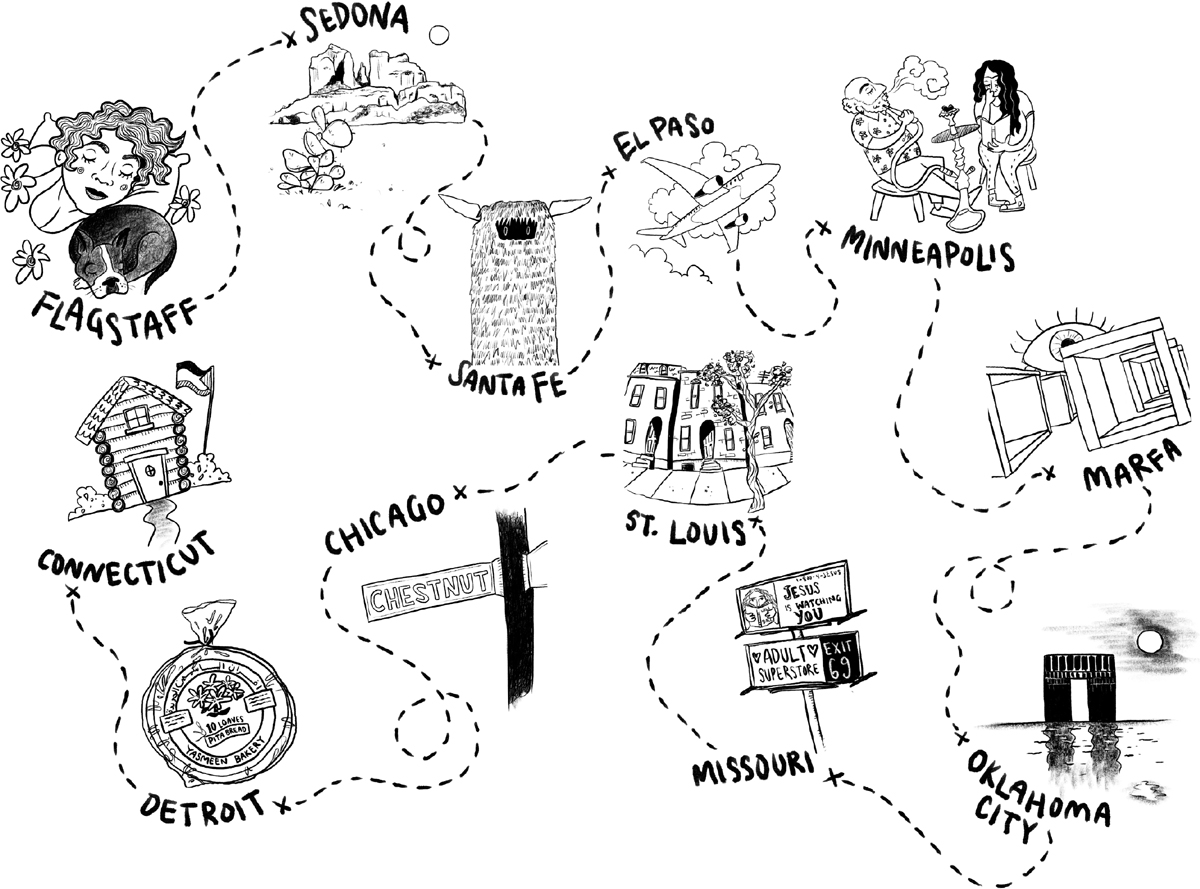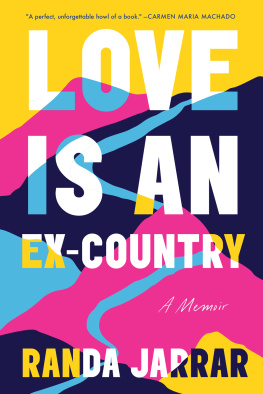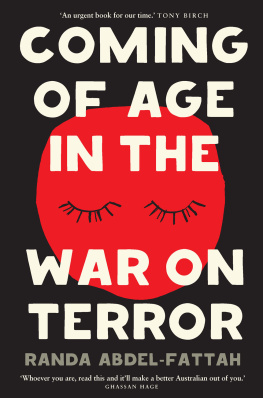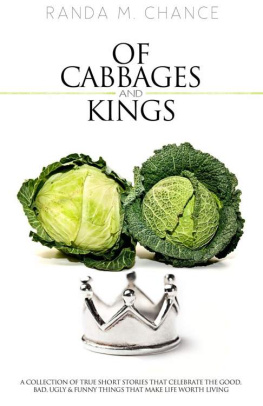Contents
Guide

Praise for Randa Jarrar
Him, Me, Muhammad Ali
Winner of the 2017 American Book Award
Winner of the 2017 PEN Oakland/
Josephine Miles Literary Award
Winner of the 2017 Story Prize Spotlight Award
An Electric Literature Best Short Story Collection of 2016
Sharp and irreverent... When Jarrars sense of humor tangles with her characters feelings of estrangement, the results are often charming and funny. Los Angeles Times
Funny and darkly imaginative... The stories are confessional and riveting by means of the deeply intimate and vulnerable spaces Jarrars characters allow us to access... Jarrars fiction has exciting range, and she investigates narrative as well as social taboo... Like the tightrope walker in the opening story, Jarrar pulls off incredible feats again and again. Portland Mercury
These stories showcase the strength and talent of a writer of immeasurable gift and grace, who confronts the poignant and often brutal realities her characters face with sass and verve. The Los Angeles Review of Books
Weird, hilarious, melodramatic, gorgeous, and sincerely resonant. Electric Literature
Jarrar presents an astonishing variety, each story as inventive as it is insightful. Its a book for this oppressive electoral season, where presidential politics are ugly and destructive, and demagoguery is endeavoring to trample a core American truth: Our countrys strength derives from open borders. Jarrar is here with a correction. The Millions
As a queer, Muslim, Palestinian-American and proud fat femme, Jarrar lives the complexities of intersectionality. Fortunately for her readers, she infuses those complexities into her characters... She shows their connections and differences by leaving no topic unexploredclass, language, and sexuality are all at the core of the book. Her style is straightforward and direct while being multifaceted and thought-provoking. Bitch
Jarrar follows up her novel, A Map of Home, with a collection of stories depicting the lives of Arab women, ranging from hypnotic fables to gritty realism... Often witty and cutting, these stories transport readers and introduce them to a memorable group of women. Publishers Weekly
A subtle interrogation of class spanning multiple generations and an exploration of desire enlivened by a dash of magical realism. Kirkus Reviews
[A] brave, bright, tell-it-like-it-is collection... Impressively varied in style and content, Jarrars collection is recommended for a wide range of readers. Library Journal
Him, Me, Muhammad Ali is a searing collection of short stories about loving, lusting, losing, and surviving. Randa Jarrar is one of the finest writers of her generation. Her voice is assured, fiercely independent, laced with humor and ironyand always, always, honest.
Laila Lalami, author of Conditional Citizens
Randa Jarrars prose is bold and luscious and makes the darkly comic seem light. The voices in Him, Me, Muhammad Ali are powerful individually and overwhelming as a chorus. This wonderful work isnt just a collection; its a world. Mat Johnson, author of Loving Day
These vibrant, funny, earthy, and above all, yearning (for love, for family, for home) stories are a revelation. Jarrar combines the invention of Calvino, the sprung style of Paley, the poetic imagery of Babel... But that mash-up isnt mere stylistic exuberance; its a restless, relentless and deeply affecting effort to forge identity out of fragments, to make a whole out of halves. These are the stories we need right now.
Peter Ho Davies, author of The Fortunes
The stories of Randa Jarrar are fearless, funny, and sad, soaring and earthly, fable-like and visceral, full of families, lovers, friends, strangers, and lonely children. These stories laugh with and think through and rise against, which is just to say they brilliantly demonstrate Jarrars huge talent, compassion, and range. Him, Me, Muhammed Ali astonishes from start to finish. Sam Lipsyte, author of Hark
A Map of Home
[An] extraordinary debut... Jarrars lack of sentimentality, and her wry sense of humor, make A Map of Home a treasure. People (four stars)
A Map of Home will leave you laughing out loud.
Entertainment Weekly
Randa Jarrar takes all the sappy, beloved cliches about where you hang your hat and blows them to smithereens in her energizing, caustically comic debut novel.
The Christian Science Monitor
In Randa Jarrars A Map of Home, Nidali, a refugee from Saddams bombs, finds a Texan adolescence dizzying to navigate with her Egyptian-Grecian-Palestinian background. Jarrars prose is as delightfully dry and intense as her main character... Sarcastic essays, Arabic lyrics juxtaposed with American rap, and other anecdotes present cross-cultural observations that are both humorous and wistful.
Oxford American
Jarrar... has created a tale of crossing borders (geographic, sexual, cultural, and otherwise) that challenges readers to remap the boundaries of normal adolescence. Bitch
Ah, eccentric families. In Jarrars first novel, the lovable Ammars are talkative, argumentative, and so alive they practically burst off the page... Jarrar is sophisticated and deft, and her impressive debut is especially intriguing considering her clever use of recent Middle East history.
Booklist
Jarrar is a funny, incisive writer, and shes positively heroic in her refusal to employ easy sentimentality or cheap pathos... A coming-of-age story thats both singular and universalan outstanding debut. Kirkus Reviews
Jarrars sparkling debut about an audacious Muslim girl growing up in Kuwait, Egypt and Texas is intimate, perceptive and very, very funny... Her exhilarating voice and flawless timing make this a standout.
Publishers Weekly (starred review)

ALSO BY RANDA JARRAR
A Map of Home
Him, Me, Muhammad Ali

For my friends
CONTENTS


In the summer of 2016, my son now an adult and a sabbatical ahead of me, I decided to drive across the country alone.
I had read about the Egyptian dancer and actress Tahia Carioca doing a cross-country American trip once in Edward Saids Reflections on Exile; he interviewed Carioca and she told him shed been married at least a dozen times. When he asked her what she thought of America she had said, Liked the people, hate their governments policies. She was born in Egypt in 1919. I was conceived in Egypt almost sixty years later, and here I was, an American woman who had never crossed her own country by car.
But the deeper I dug into Tahia Cariocas trip, the less I found about it. She had indeed married more than a dozen times: I found the names of fourteen of her husbands. One of them was an American lieutenant she had met while she was dancing at the Cairo Officers Club during the Second World War. I whistled the loudest, he boasted to Associated Press reporters after they married. She was twenty-five or twenty-six, a young woman who had already been dancing for ten years. She loved to dance, she always said, but hated the stereotypes about dancers. Of these, she told an American newspaper in 1946, was the idea that dancers lead a life of exotic leisure. In the movies, she said, the dancers drink big goblets of wine, eat at rich banquets, and flirt with everybody. Actually, I... lead a rather simple life to keep my weight down and my muscles lithe. I found photos of her fifty years after this interview; in them, she is fuller, big bellied, with fat arms and a gorgeous round face. By then she was finally leading the rich life she had so fully earned.










